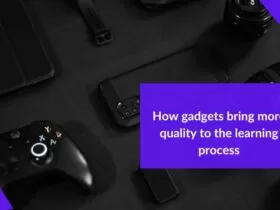In this blog, we will see the importance of patient-centric care and how emerging technologies are improving it.
With a lack of hospital staff and uneven distribution, remote areas cannot receive high-quality medical care. It’s ridiculous to imagine that we’re the only ones who face these kinds of problems. When it comes to everyday duties, there don’t seem to be many people who can handle them, even though healthcare insurance covers many operations. In contrast, new technologies have changed everything.
What is the significance of patient-centric care?
What is the significance of patient-centric care in today’s healthcare? Healthcare professionals can lower costs and better allocate resources by adopting a patient-centric approach to care. As part of patient-centric care, patients gave access to their medical records and the ability to make educated treatment decisions. As a result, not only do patients’ outcomes improve, but their overall experience does as well.

Computerized Reasoning
A wave of interest in technologies that use artificial intelligence (AI) is currently sweeping the healthcare sector. Robot-assisted surgery, virtual nursing assistants, and administrative workflow assistants are the most common uses of these technologies to date.
You can tackle tumors and other diseases with the help of robust AI systems. Thanks to machine learning, robots can tailor their treatment plans to each patient’s specific needs.
Is there a way that Blockchain might improve the lives of patients?
Blockchain is an excellent example of a distributed network with exceptional fault tolerance. Blockchain runs via a peer-to-peer network, but transactions between users are protected by robust cryptography. You can achieve your plans by relying on crypto primitives like the Bitcoin calculator.
A system of smart contracts is based on the blockchain. People can utilize smart contracts to protect their medical data. The blockchain is used to operate smart contracts.
Telemedicine
The use of telemedicine in health care enables clinicians in underserved areas to reach more patients and provide better service. Increasingly, patients want their medical treatment delivered in a more convenient way for them. There are now opportunities for clinical support via video conferences or phone calls to be provided through telemedicine.
Monitoring of the patient
The Internet of Medical Things (IoMT) is another example of how many may use technology to improve patient care. IoMT allows for near real-time monitoring of patients’ vital signs, location, and activity, as well as their medication intake.
Automated medical systems
Such patient care technology subfields as IoMT solutions, RPA, and AI improve hospital logistics, inventory, pharmacy administration and speed up hospital processes.
It is possible to automate the transportation of medication, blood samples, laboratory specimens, and other hospital equipment using RFID tags and position sensors.
Healthcare facilities might save $13.3 billion annually by automating manual operations using robotic process automation (RPA). RPA software agents in healthcare can do everything from processing transactions to modifying data, initiating responses, and talking with internal and external IT systems.
The FDA must approve medicines
Manufacturers of pharmaceuticals and supplements may find it beneficial to include a QR code on the box. A user might scan this code to learn more about the product’s provenance and legitimacy right away. Companies that help to use automatic photo editors can also use blockchain to serve consumers who are concerned about their health and provide information about the product they want.
Doctors and nurses also benefit from the use of technology in their education. Many medical professionals rely on immersive training methods such as 3D visualizations and virtual reality to take them for a wide range of medical specialties.
Conclusion
Blockchain and artificial intelligence may have a positive impact on healthcare for people. With these new tools, patients will feel more at rest knowing that their information is available. Using this information, clinicians may enhance health care by providing straightforward counsel to everyone.

























